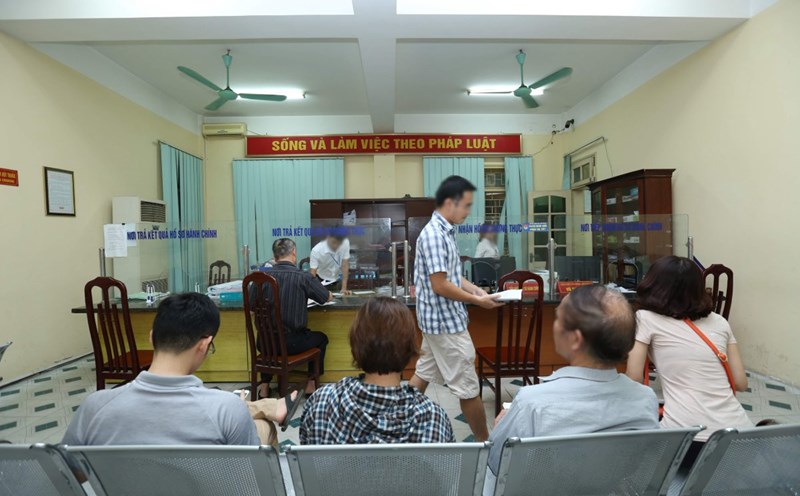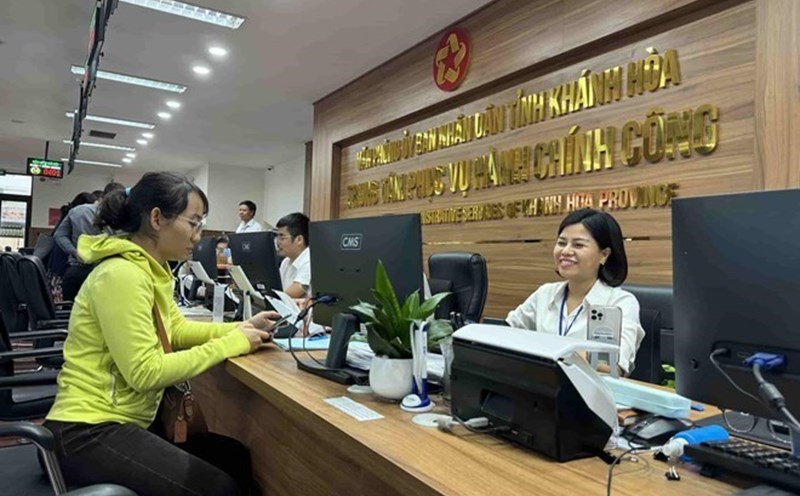The Ministry of Home Affairs is seeking opinions on the draft Decree of the Government regulating the assessment and classification of civil servant quality.
According to the drafting agency, civil servant assessment is based on specific criteria for evaluating the performance of tasks according to the products/work of each job position that civil servants undertake.
At the same time, applying science and technology to monitor, evaluate, and classify the level of task completion objectively, in line with the achieved results as a basis for arranging, using, treating, and screening the civil servant team, contributing to restructuring and improving the quality, building a team of professional, responsible, dynamic, and creative civil servants; serving people and businesses, and developing the country.
The draft clearly states that KPI is an index to assess the level of task completion of civil servants, determined based on products/work or product/work norms associated with job positions, reflecting the effectiveness of task performance in terms of quantity, quality and progress.
Notably, the draft has a provision on evaluating the performance of tasks (KPI) for civil servants holding leadership and management positions.
According to the draft, the duties of civil servants holding leadership and management positions depending on their positions include the tasks assigned to them directly; the task of directing, operating, organizing the implementation of tasks, guiding, inspecting, supervising, and resolving problems within their functions; tasks related to products/work and civil servants in the assigned unit.
Regarding the formula for calculating KPI scores for leaders and managers, according to the draft, there are 6 criteria.
In which, 3 criteria on quantity, quality and progress of task performance are determined by the ratio of percentage between volume, quality and product progress. Either the completed work is compared to the assigned task or the standard according to the job position, which has been converted to a standard product/work unit.
The fourth criterion is the results of activities of the agency, organization, unit or field assigned to him/her.
In case 100% of civil servants under the management authority and in charge of classifying quality as task completion or higher, the score will be calculated at 100%.
In case a civil servant under the management or responsibility is classified as not completing the task, the score will be calculated at 50%.
The fifth criterion is the ability to organize and implement tasks.
In case the unit completes all tasks according to the plan on time, ensures quality, has initiatives or solutions to effectively organize implementation, the score will be calculated at 100%.
In case there are shortcomings, limitations, or prolonged delays in implementing the assigned work program or plan during the assessment period, the score will be calculated at 50%.
The sixth criterion is the capacity to gather and unite civil servants under the management scope.
In case the unit maintains a united and effective working environment between individuals and departments, the score will be calculated at 100%.
In case there are no complaints or recommendations about conflicts or prolonged internal disunity during the assessment period, the score will be calculated at 50%.
The Ministry of Home Affairs stipulates that the results of monthly monitoring and evaluation criteria for civil servants are determined by the total scores of general criteria and scores of performance results of civil servants. In which, the score according to general criteria accounts for 30% of the total score, the task performance result score accounts for 70% of the total score.











